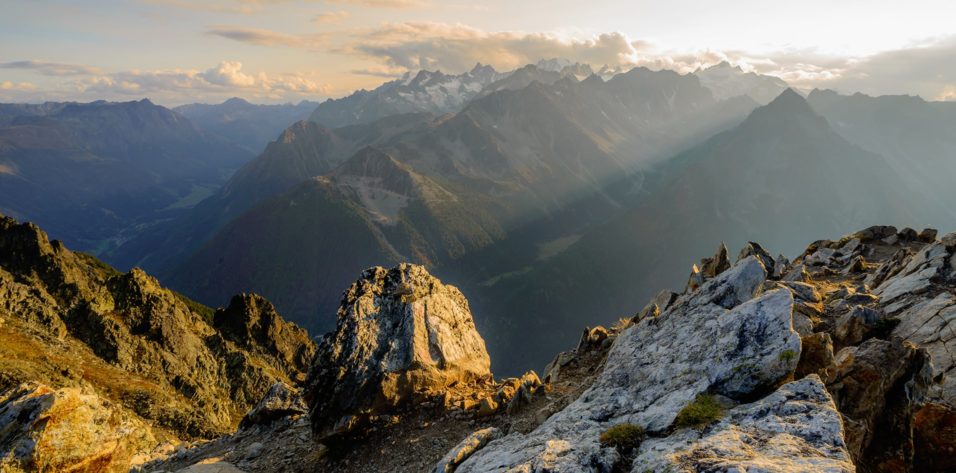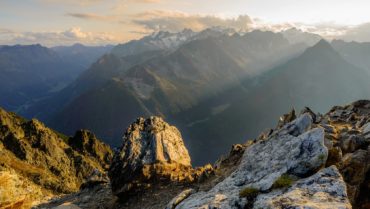
Growing up, I always pushed myself to try to succeed at new activities. I’ve been skiing since I could walk, and in high school I excelled at long-distance running and the pole vault. My lifelong passion for physical activity has taught me many skills and lessons that I use on a daily basis as an eye care provider.
A Piece of Good Advice
Being in nature has always been therapeutic for me. When I was 16—going on 30—I remember asking an adult role model how to raise kids who are humble, hardworking, and appreciative. Her response was simple, “Spend time in nature,” and that has always resonated with me. Being in nature helps you learn about yourself by allowing you to disconnect from the hustle and bustle of daily life. Growing up in the Pacific Northwest made nature extremely accessible. As a kid, I spent winters on the mountains honing my skiing skills and summers on the lake on any water board I could get my hands on. I have fond memories of going on hikes with my grandfather and uncles; they taught me which berries were okay to eat and which plants to avoid. Utah was an easy choice for my undergraduate studies because it’s the ultimate adult playground. I met likeminded people with healthy lifestyles who liked to get outside and explore. Whether hiking in the Uinta mountains, snowshoeing, stand up paddle boarding (Figure 1), or snow-kiteboarding, I love being active and outdoors.
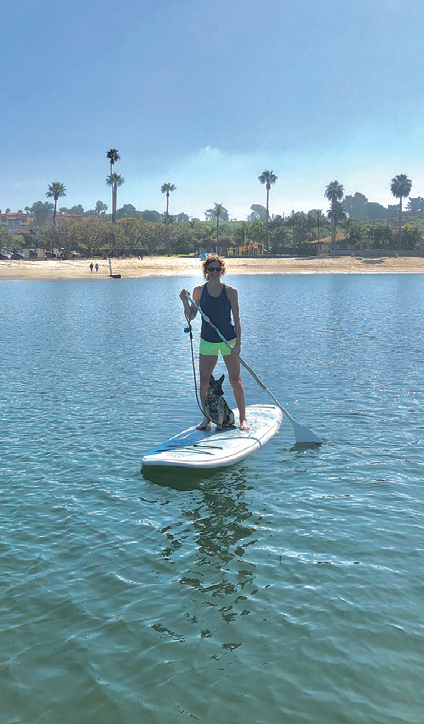
Figure 1. Dr. Jarstad stand up paddle boarding in Newport Beach, California with her puppy, Wilson.
Mountain Climbing and International Outreach
During medical school, I developed a passion for climbing mountains. I summitted and skied down Mount Adams in Washington with a group of fellow medical students to raise money for an organization called Pacific Northwest Surgical Outreach. That organization was founded by my general surgery preceptor with the goal of delivering surgical care to those in need all over the world. I was fortunate to be able to accompany Jason Cundiff, MD, to Haiti where I was able to assist in general surgeries and later, as a fourth-year medical student, to South Sudan to do the same. On the South Sudan trip, we took 3 days to summit Mount Kenya (Figures 2 and 3), the second highest mountain on the African continent.
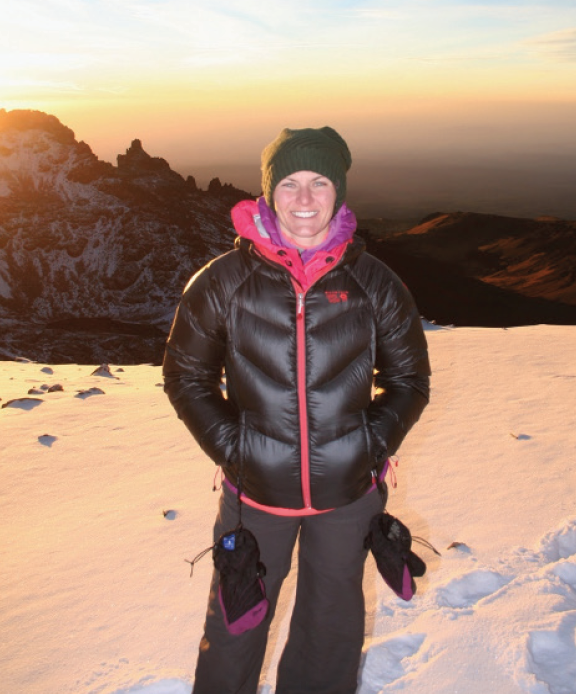
Figure 2. Dr. Jarstad taking a moment to enjoy a sunrise near the summit of Mount Kenya in February 2013.
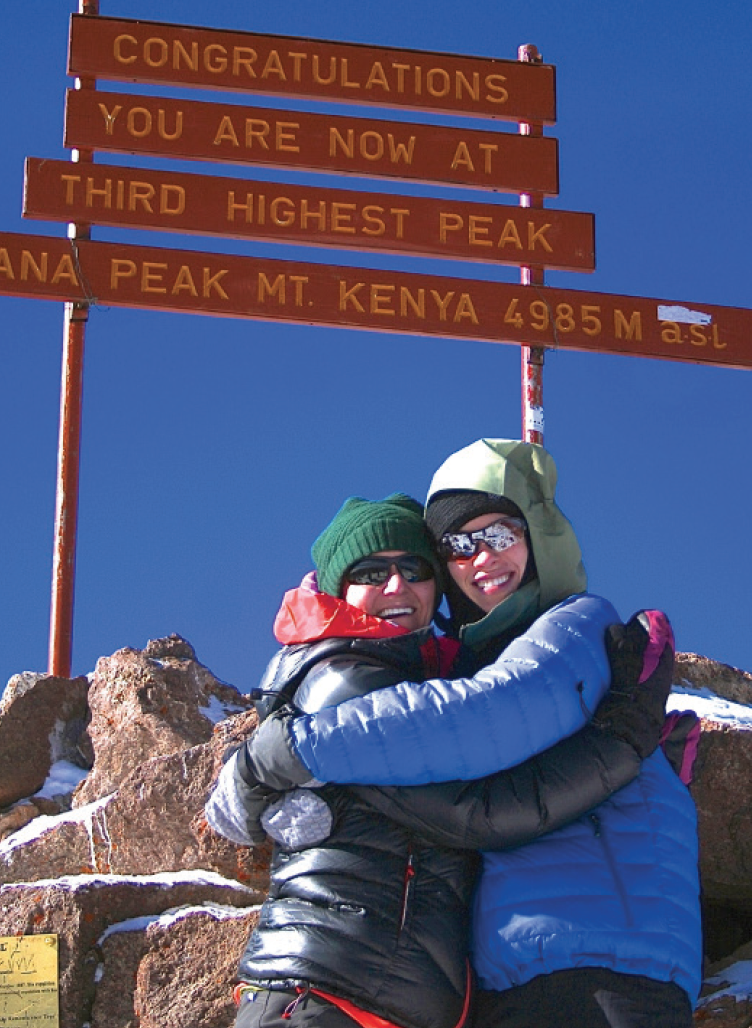
Figure 3. Dr. Jarstad and a colleague celebrating reaching Point Lenana on Mount Kenya.
Climbing in Africa also sparked a passion in me for international outreach work. I saw so much blindness as a medical student that I didn’t know how to treat, so I committed myself to training in eye surgery. I promised myself that I’d return to South Sudan equipped with my new skill set in order to help these people who have virtually no access to eye care.
My passion for outreach continued, and after my cornea fellowship I went on to Stanford University to complete a Global Ophthalmology Fellowship, working with the Himalayan Cataract Project and its cofounder and chairman, Geoffrey Tabin, MD.
While on a cornea teaching trip to Tanzania, after spending a week working side by side with Elisante Muna, MD, the only cornea specialist in the country, I was able to take a week to summit Mount Kilimanjaro—one of the famous Seven Summits (Figure 4). This is a 7-day climb, and, again, it was a test of discipline, a challenge that took me to the edge of my physical and mental limits.
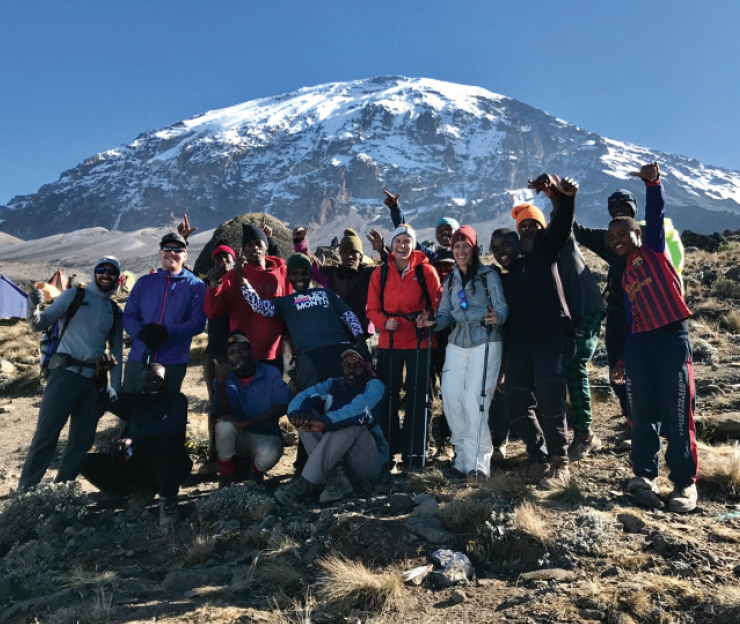
Figure 4. The group on the way to the summit of Mount Kilimanjaro in August 2018.
Whenever I wanted to quit, I told myself to simply put one foot in front of the other. Just as the journey toward becoming a doctor can seem impossible, if you take it one day, one examination, one patient at a time, eventually you will accomplish your goal.
Reenergize and Refocus
The discipline, stamina, and patience it takes to summit a mountain can be compared with many aspects in life, especially climbing the mountain of medical education. The beginning of the Kilimanjaro climb was sunny and warm, and the terrain was pretty flat; later on, it was frigid cold, and my legs felt extremely heavy. But you continue to put one foot in front of the other in order to reach that vista at the end.
I remember an especially challenging part of the climb when we started to approach a flat area before another steep incline, and we had the most magnificent view of a sunrise. It reenergized all of us so that we could continue the climb to the end. This can be related to similar challenges in life. While you’re in the midst of it, stopping and realizing the beauty of life around you can help you to reenergize and refocus your efforts.

